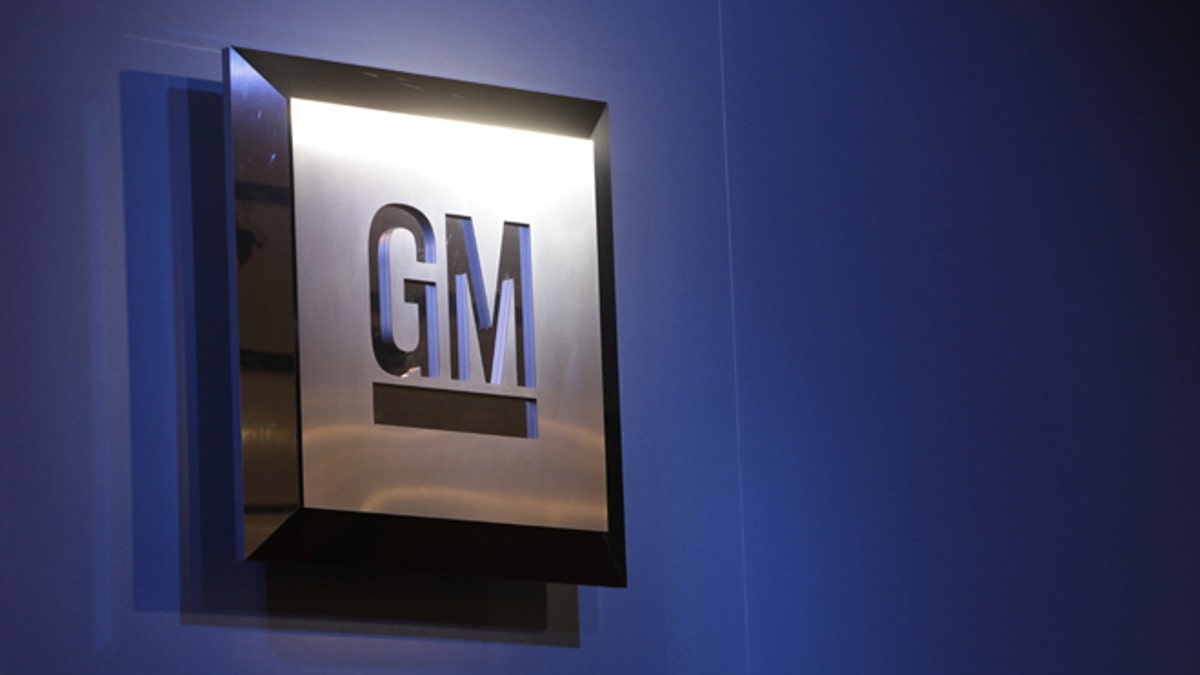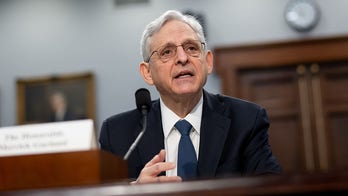
Jan. 12, 2009: The General Motors logo is on display at the North American International Auto Show in Detroit. (AP)
DETROIT – Documents released by a House subcommittee show that managers and employees at General Motors were often slow to react to safety problems -- and that one part of GM often didn't know what another was doing.
One of the documents is an email showing that General Motors CEO Mary Barra was made aware of power steering problems with the Saturn Ion back in October of 2011, when she was head of product development. It took the company more than two years to recall the cars for that problem.
The power-steering issue is separate from the ignition switch defect that is at the heart of a separate recall of 2.6 million small cars that is the subject of a subcommittee investigation. GM has linked the switch defect to 13 deaths.
The email was among dozens of documents released Friday. Others show that engineers were unaware the switch had been changed in 2007, and that regulators at times found GM to be slow to respond to requests for information.
GM has admitted knowing about the switch problem for more than a decade, yet it failed to recall the cars until February. The switch can unexpectedly slip out of the "run" position and shut down the cars' engines, which cuts off power steering and stops air bags from deploying.
The email does not link Barra to any decisions made regarding the switch. She has said that she only become aware of the matter in December. She has distanced herself from GM's slow action on safety issues in the past, saying she's trying to install a culture that is focused on consumer protection.
When Barra received the 2011 email, the company's safety and recall operations reported to her. The email referenced an article from The New York Times that detailed a March 2010 recall of Chevrolet Cobalts and Pontiac G5s to fix faulty power steering motors. If the motors fail, steering can become difficult, causing crashes. The article raised questions about why GM hadn't recalled the Ion, which had the same power steering motor.
"During the initial Cobalt case, the Ion data did not justify being included," GM employee Terry Woychowski told Barra in the email. "This situation has been evolving. We will meet and understand the latest data."
Joan Claybrook, a consumer advocate who is a former head of NHTSA, said the email raises the question of why Barra wasn't told about other small-car problems when she was the product chief.
The National Highway Traffic Safety Administration said in a December 2010 document that there were 16 crashes and two injuries in the affected Ions.
GM decided on March 31 to recall the Ions. Spokesman Alan Adler would not say what changed between 2011 and now. But he sent a quote via email from Jeff Boyer, GM's new safety chief, that said, "We have recalled some of these vehicles before for the same issue and offered extended warranties on others, but we did not do enough."
The House documents also showed that GM has had a strained relationship with government regulators. In a 2013 email, the head of defect investigations for NHTSA told GM's head of investigations that the automaker was "slow to communicate, slow to act" and, at times, required more prodding from the government than its peers. The official listed six examples.
Claybrook says NHTSA could have leaned on GM to cooperate. "NHTSA is a cop and it's supposed to act like a cop. ... Not like your best friend."
The documents also include GM internal powerpoint presentations from earlier this year that show parts of the company had no knowledge of changes made by engineer Ray DeGiorgio to the ignition switches in 2006. One of the slides shows that the switch got a new plunger and spring to make it harder to turn, with testing completed in April of 2006. But the part number wasn't changed and the date on which the new part went into production was unknown.
Another slide shows that Cobalt stalling complaints dropped significantly between the 2005 and 2006 model years, presumably when the part change took place.




